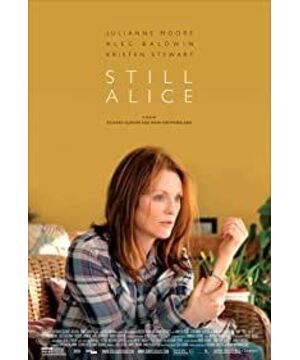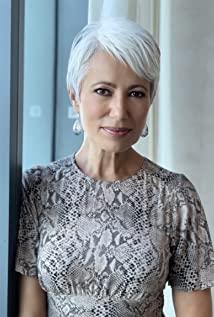For Alice, an excellent scientist in language cognition, and a wise woman with a happy family, the cognitive impairment and memory degradation caused by Alzheimer's disease will cause her to suffer more terrifying pain than ordinary people, so she is in the Butterfly traps buried in the closet under the blue lamp are inevitable. However, it was precisely because of her wisdom and knowledge that when she was still sober, she used her last grace to strive to be a unique warrior. Therefore, among the thousands of Alzheimer's patients in the world, there are only a very few people like Alice who can convey "How I feel" to the general public with amazing perseverance and courage.
In the same way, only an actor like Julianne Moore can restore an Alice - the initial daze, confusion, fear, the pain of losing her career, the guilt inherited from her children, the loss of her husband's inability to accompany her, the inability to face the humbleness of her own disability . So at the end of the film, when Alice said "love" in a vain way, we still see the once dazzling Alice buried deeply. So the ending is fixed in a relatively forgiving scene, leaving Ali a final grace and decency (compared to most patients in real life).
As she said - Alzheimer's needs to be taken seriously, it's a disease and there are currently no effective treatments. I hope that in the future, mine and our children will be free from this disease.
It's a pity that Kristin Stuart's acting skills are really... As soon as I read the lines, I pursed my lips and shook my head and swallowed the words... Really... Although she fits the little daughter's setting to some extent... But... But... But at the end, let her read such a paragraph... ...it's just embarrassing.
Baldwin is doing okay.
Well, a three-point movie, a goddess close to a five-point. Four point movie.
View more about Still Alice reviews











